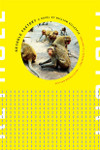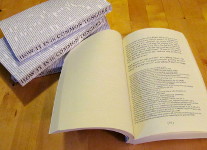A Book on the Song “Hallelujah”
Acting on a tip from The Kelly Writers House at my alma mater, the University of Pennsylvania, I recently learned about, and then read, Alan Light’s book The Holy or the Broken: Leonard Cohen, Jeff Buckley & the Unlikely Ascent of “Hallelujah.” This intrigued me as an admirer of this song in particular, Leonard Cohen’s songwriting and singing generally, and other aspects of his literary art (particularly the incredible novel Beautiful Losers). It also appealed to me as an entire book written about a single, short work. In this case, the work isn’t a Commodore 64 BASIC program – as in the book collaborators and I wrote, 10 PRINT CHR$(205.5+RND(1));: GOTO 10 – but a popular song with many lines and many covers, one that has been used in a wide variety of contexts.









